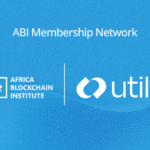Across Africa, access to genomic insights is often reserved for well-funded laboratories or large hospitals. Yet, Genomic Platform, a Nigerian healthcare startup, founded by Rotji John, is on a mission to change that.
According to the startup, it aims to provide accessible genomic analysis for small clinics, startups, and researchers, and give individuals ownership and control over their DNA data.
In this edition of Techparley’s DRIVE100, we spotlight Genomic Platform, the startup transforming genomic healthcare, and providing small clinics, researchers, and individuals with fast, automated DNA and RNA analysis, through blockchain and NFT technology.
“Genomic Platform solves two critical problems in healthcare and research: the lack of accessible genomic analysis tools for small clinics, researchers, and individuals, and the loss of ownership and control over personal DNA data,” John told Techparley.
Understanding the Problem
By combining automated genomic workflows with secure, user-controlled data monetisation, Genomic Platform wants to close the gap between advanced genetic insights and accessibility for everyday users.
For small hospitals, research labs, and individual users, genomic analysis presents multiple barriers:
- High interpretation costs for DNA and RNA sequences.
- Lack of in-house bioinformatics expertise.
- Slow access to actionable insights.
- No control or compensation when their genetic data is reused by third parties.
These challenges limit the ability of clinics and startups to perform mutation detection, drug resistance screening, pathogen surveillance, and hereditary risk analysis efficiently.
How Genomic Platform is Bringing a Solution
Genomic Platform combines automated classical genomic workflows with NFT-based data ownership, creating a unique ecosystem that is both powerful and user-friendly.
According to the startup, users can upload DNA or RNA sequences to receive:
- Mutation mapping and drug resistance reports.
- Pathogen detection and hereditary risk interpretations.
- Annotated results delivered in researcher- or doctor-friendly formats.
Simultaneously, the platform allows users to tokenize their encrypted genomic data as NFTs, granting them ownership, permissioned sharing, licensing, and monetization options.
The startup says key features include automated DNA/RNA analysis and result visualisation; secure, encrypted data storage; optional NFT-based ownership and royalty mechanisms; and permissioned sharing with audit trails for research collaboration.
Benefits for users include faster and lower-cost insights, full control over genetic data, new economic opportunities through data licensing, and access to research and clinical insights without intermediaries.
How Genomic Platform is Different
What sets Genomic Platform apart is its integration of analysis and ownership. Traditional genomic platforms like 23andMe or Helix provide analysis but no data control. Emerging NFT-genomics projects like Nebula Genomics or EncrypGen focus on data ownership but don’t provide actionable clinical insights.
“Our unique value proposition is that we democratize genomic intelligence for individuals, small clinics, researchers, and startups while giving users full control and monetization rights over their genetic data through blockchain-backed privacy, encryption, and smart contracts,” John explains.
By merging automated genomic analysis, drug resistance detection, mutation reporting, and NFT-enabled ownership in one platform, Genomic Platform addresses both access and ownership gaps simultaneously.
Currently at the MVP stage, Genomic Platform has been prototyped to handle:
- Automated genomic analysis pipelines.
- Encrypted upload and storage of DNA/RNA sequences.
- Integration of an NFT-based ownership layer.
Although John is the sole founder at this stage, the prototype has been developed using anonymised public datasets while ensuring compliance with privacy and regulatory standards.
In years to come, the startup wants to provide secure DNA/RNA uploads and a basic NFT ownership layer; expand into clinical reporting, drug resistance monitoring, pathogen surveillance, and ancestry analysis; and launch a genomic NFT marketplace for ethical data licensing.
Genomic Platform wants to become the leading decentralised genomic data platform, connecting individuals, hospitals, biotech firms, and AI researchers; enable consent-driven access, personalised medicine insights, and large-scale genomic intelligence powered by user-owned data.
What This Means
John views AI as a tool for growth, highlighting both its disruptive potential and its benefits in healthcare, education, finance, and security. He stresses that responsible frameworks are essential to ensure AI augments rather than replaces humans.
For venture capitalists, John believes their role extends beyond funding to mentorship, regulatory guidance, partnerships, talent acquisition, and credibility-building, all of which are vital to increasing a startup’s chance of success.
The greatest challenge for Africa’s tech ecosystem, he notes, is bridging the gap between innovation and infrastructure.
The global genomics market is projected to be worth $30.75 billion in 2024 and reach $80.17 billion by 2032. According to analysts, this surge reflects increasing concern around data privacy, consent management and the commercial value of genetic datasets.
Industry leaders say Genomic Platform is poised to revolutionise how Africans access, interpret, and own their genomic data. By merging cutting-edge bioinformatics with blockchain-enabled data control, the Genomic Platform is creating a new paradigm in healthcare, research, and personal data ownership.
Talking Points
It is impressive that Genomic Platform is addressing critical gaps in accessibility of genomic analysis for small clinics, researchers, and individuals, and ownership of personal DNA data.
By combining automated DNA and RNA analysis with blockchain-based data control, the platform allows users to quickly receive mutation reports, drug resistance insights, pathogen detection, and hereditary risk interpretations, all without needing advanced bioinformatics expertise.
At Techparley, we see how a platform like this can democratise genomics, bringing cutting-edge healthcare tools to clinics, startups, and individuals who would otherwise lack access to these services.
The integration of automated genomic workflows with NFT-enabled data ownership means users not only gain insights but also maintain control, consent, and potential monetisation of their genetic information, creating a new model for data-driven healthcare.
As Genomic Platform develops, strategic partnerships with sequencing centres, research labs, and health startups could accelerate adoption, while regulatory alignment and user education will be crucial in establishing the startup as a trusted leader in decentralised genomic intelligence.
——————-
Bookmark Techparley.com for the most insightful technology news from the African continent.
Follow us on Twitter @Techparleynews, on Facebook at Techparley Africa, on LinkedIn at Techparley Africa, or on Instagram at Techparleynews.






